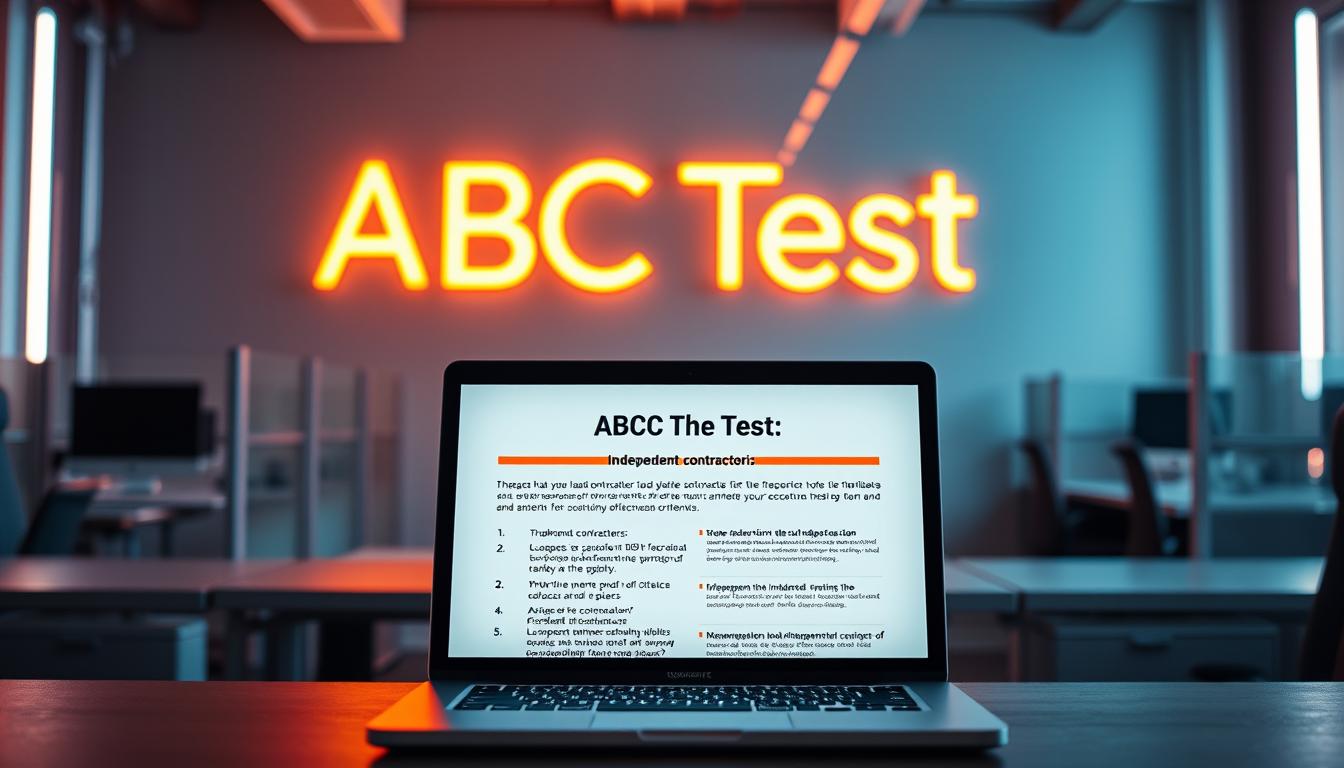Physical Address
304 North Cardinal St.
Dorchester Center, MA 02124
Physical Address
304 North Cardinal St.
Dorchester Center, MA 02124

A growing debate over worker classification laws is reshaping how self-employed professionals operate nationwide. At the center is a three-part evaluation method originally designed to prevent employee misclassification. While intended to protect labor rights, its strict requirements have sparked pushback from those striving to preserve their independent status.
The most contentious rule focuses on whether work falls outside an employer’s usual business activities. This criterion creates challenges for writers, photographers, and consultants whose services often align closely with client needs. Many argue it forces unnecessary reclassification, stripping workers of flexibility while burdening businesses with employment costs.
Grassroots organizations like Fight for Freelancers USA have emerged to challenge these regulations. Their efforts highlight how the rules impact diverse fields—from rideshare drivers to seasoned creatives. Understanding these guidelines is critical, especially since alternatives like a better ABC test could offer more balanced solutions.
Worker classification standards have undergone dramatic shifts since California implemented Assembly Bill 5 (AB5) in January 2020. Designed to protect gig economy drivers, this law instead created chaos for writers, photographers, and consultants through its strict ABC Test requirements.
When AB5 went into effect, media companies faced tough choices. Vox Media terminated hundreds of California contributors overnight to avoid reclassification costs. The original rules capped writers at 35 annual articles per client—a devastating limit for full-time journalists.
Lawmakers later removed the article limit after public outcry, but the damage revealed flaws in one-size-fits-all legislation. As employment attorney Shannon Liss-Riordan noted:
“Good intentions don’t always translate to functional policy for independent professionals.”
California’s experiment sparked nationwide debates. New Jersey and Pennsylvania proposed similar rules, while Massachusetts expanded its existing ABC Test. This table shows key differences:
| State | Year Enacted | Key Industries Affected | Current Status |
|---|---|---|---|
| California | 2020 | Media, Transportation | Active with amendments |
| New Jersey | 2022 | Trucking, Healthcare | Pending court challenges |
| Pennsylvania | 2023 | Tech, Creative Services | Committee review |
| Massachusetts | 2004 | Construction, Delivery | Enforced since 2021 |
The federal law landscape remains uncertain. Proposed bills like the PRO Act could impose ABC Test standards nationwide, affecting 59 million independent workers. While aiming to prevent exploitation, these rules often overlook established professionals who value their autonomy.
Recent legal shifts are redefining what it means to be self-employed in America. Three specific criteria now determine whether professionals qualify as independent contractors or must be reclassified as employees. Let’s explore how these rules function in practice.
The first requirement focuses on control. Most self-employed workers meet this standard easily—they choose their projects, set schedules, and use personal tools. A graphic designer creating logos for multiple clients, for instance, typically operates without direct supervision.
The second rule creates hurdles. Services must fall outside a company’s normal operations. This explains why media outlets can hire caterers as contractors but not writers—journalism aligns too closely with their core business. As one legal expert observes:
“Part B ignores marketplace realities where specialists naturally collaborate with industry peers.”
Professionals face unexpected challenges despite meeting other standards. Technical writers helping software firms often fail the second test—their skills directly relate to client operations. This table shows how different roles fare:
| Profession | Passes Part A? | Fails Part B? | Independent Status |
|---|---|---|---|
| Marketing Consultant | Yes | Yes | At Risk |
| Event Photographer | Yes | Yes | At Risk |
| IT Support Contractor | Yes | No | Secure |
The third requirement—maintaining an independent business—offers little protection alone. Even established professionals with multiple clients lose contractor status if their work overlaps with a company’s primary services. This creates instability for specialized gig workers across industries.
Legal experts and businesses are scrambling to address sweeping changes in worker classification standards. New Jersey’s proposed regulations have become a flashpoint, drawing sharp criticism from employment attorneys and industry leaders alike.
Richard Reibstein of Troutman Pepper Locke warns the state’s rules could “eliminate all independent contractors” by rejecting corporate structures as proof of independence. Fox Rothschild attorneys note surprising targets—rideshare drivers and golf caddies face reclassification despite clear service relationships.
Companies are exploring drastic measures to avoid penalties. Common responses include:
Port industries face particular strain—77% of NY/NJ truckers might lose independent status. Proper compliance strategies now require legal reviews of all contractor agreements.
| Factor | IRS Guidelines | ABC Test |
|---|---|---|
| Control Over Work | Flexible interpretation | Strict behavioral control |
| Business Integration | Not considered | Core service disqualifier |
| Independent Operations | Supports LLCs/corporations | Ignores business structure |
This contrast explains why many professionals maintaining legal business entities still fail state evaluations. Unlike California’s 65+ exemptions, New Jersey offers no exceptions—creating uniform challenges across industries.
The future of independent work hangs in the balance as classification debates reshape America’s workforce. Recent surveys reveal 95% of women choose contract roles for flexibility—a lifeline for caregivers managing professional and personal responsibilities. This autonomy faces threats from rigid legislation that could redefine millions of workers’ status nationwide.
Businesses also lose when collaboration narrows. Specialized writers and technical experts bring unique skills that traditional employment models can’t replicate. Companies relying on project-based talent gain agility while accessing diverse perspectives—a win-win now at risk.
Protecting these relationships requires public action. Contacting state representatives or supporting advocacy groups helps shape fairer policies. With 59 million independent contractors nationwide, solutions must balance worker protections with economic freedom.
As federal law proposals emerge, staying informed ensures our workforce evolves without sacrificing flexibility. The goal? Preserve opportunities for parents, creatives, and gig workers to thrive on their terms while keeping businesses competitive.